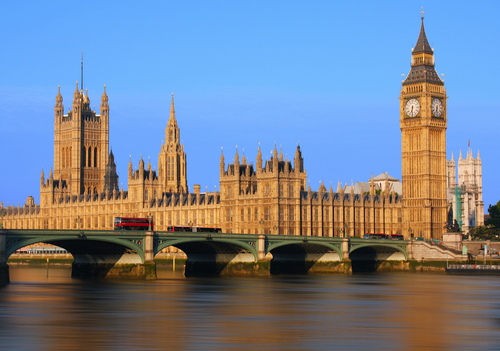Experienced Investor
How the UK General Election could impact investors

This week’s General Election is without historical precedent. Never before has a vote, and the governmental configuration that will be produced, been quite so unpredictable, and uncertain.
In light of this ambiguity, many investors are reviewing their portfolios. Last week, The Investment Association (IMA) released figures indicating that private investors withdrew £963 million from UK equity funds in March, the largest net outflow ever recorded.
James Bateman, head of portfolio management at Fidelity Solutions, believes the election poses three separate forms of uncertainty: the overall shape of the next government; its ability to implement policy effectively; and risks posed by policies themselves.
YourMoney.com spoke to Bateman about the individual and combined risks for investors posed by these uncertainties.
- Hung Parliament
Hung parliaments have historically been a rare occurrence in British politics; between 1929 and now, there have only been two (February 1974, and 2010). However, all current polls and indicators point to a hung parliament following the next election. Bateman notes that such an eventuality “would likely spook UK equity markets.”
Coalitions take time to form. Following the 2010 election, it took five days for the Conservative/Liberal Democrat government to take shape. Following the last general election in Belgium, it took 535 days for a government to be created. No matter how long coalition negotiations take, there is a risk that UK equity markets could fall. Bateman believes they could fall by as much as 5 – 15 per cent, even in a brief period.
However, he believes any fall represents a potential buying opportunity for investors. “In 2010, British markets regained losses fairly quickly once the coalition was formally in place, and I’d expect a similar rally following an unclear initial result this time around.”
In short, investors who hold their nerve through a hung Parliament could be rewarded over the longer term.
- Fragile Government/Election Repeat
Despite much anxious muttering in the mainstream media, UK markets have remained relatively robust in the lead-up to 7 May. Bateman observes that the FTSE 250 index (which he dubs “the best temperature-taker in this instance”) has performed strongly this year, which he believes indicates that medium-sized listed firms are “fairly relaxed” about the election’s outcome.
“I think part of the reason for this may be that markets are pricing in an ineffective government, at least in the shorter-term.”
Diluted permutations of the major parties’ policies could, James continues, “be less disruptive overall than if they were implemented to their full extent.” This would suit UK-sensitive businesses “fairly well” for the time being.
However, there are also longer-term risks to consider – such as the prospect of a highly unstable coalition with a small majority taking power, raising the prospect of another General Election before 2020. If the next government is a particularly fragile one, it could only be a matter of months before parliament is dissolved and another election called. Such an eventuality would cause markets “to constantly price in the possibility of an early dissolution, meaning significant uncertainty.”
- Policy
It is of course impossible to predict the policy platform of a future coalition. Conversely, however, any coalition agreement means no party will be able to enact their manifesto in full. Still, there is the prospect that some individual policies would rattle markets, even if temporarily. Two obvious examples are the Conservative pledge for an EU referendum by 2017, and the energy price freeze proposed by Labour. In the event of another referendum on the issue of Scottish independence, the risks posed to UK investors would be “considerable”.
- Sterling
Bateman further believes that one easily-overlooked area to consider following the 2015 General Election will be Sterling. The plausible post-election scenarios that have been outlined could all cause a sudden and potentially dramatic fall in Sterling in the short-term, which would impact all investments outside the UK. “Currency moves have complex implications,” James notes. “They’re difficult to predict, and even harder to trade. Holding fast and sitting tight through shorter-term volatility for currency markets after the election may be the best option for many investors.”
Investors keen to structure their portfolios to insulate against the risks posed by the election needn’t fret. “The Election may seem extremely important now, but for long-term investors, it is simply another bump in the road,” James remarks. “Fidelity believes that spreading a portfolio across asset classes, global regions and sectors can help to diversify risk, and lower volatility overall.
“A multi-asset approach which truly understands the relative behaviours of these asset classes and combines them effectively in a portfolio could be a good option for investors seeking to avoid some of the turbulence caused by the many forms of election uncertainty we’re likely to see in the shorter-term,” James concludes.